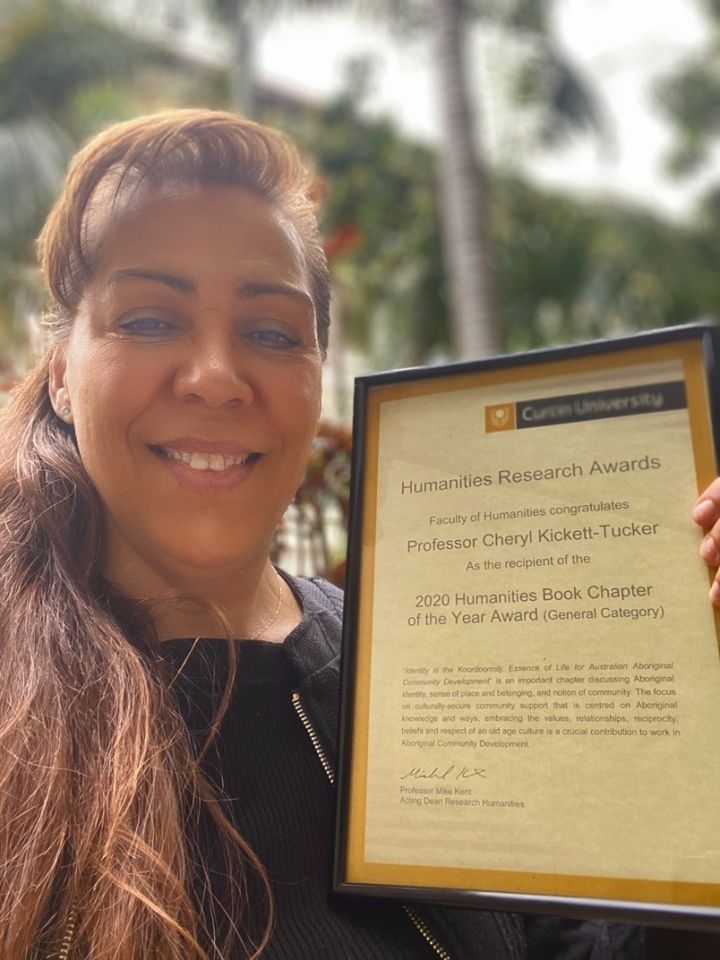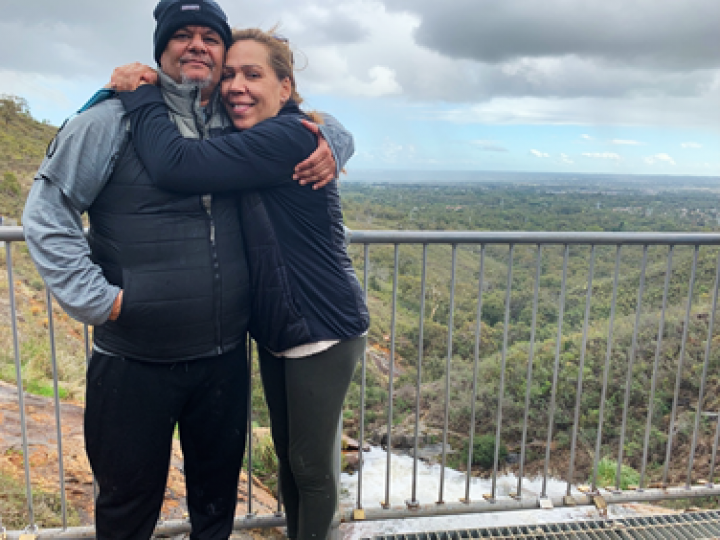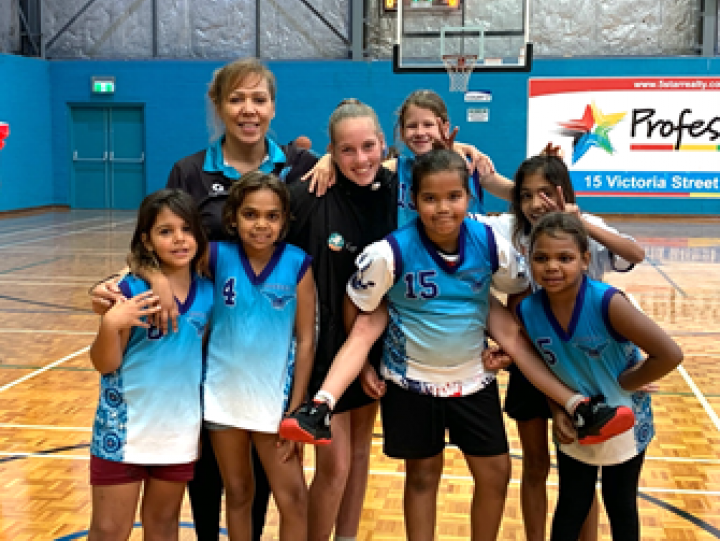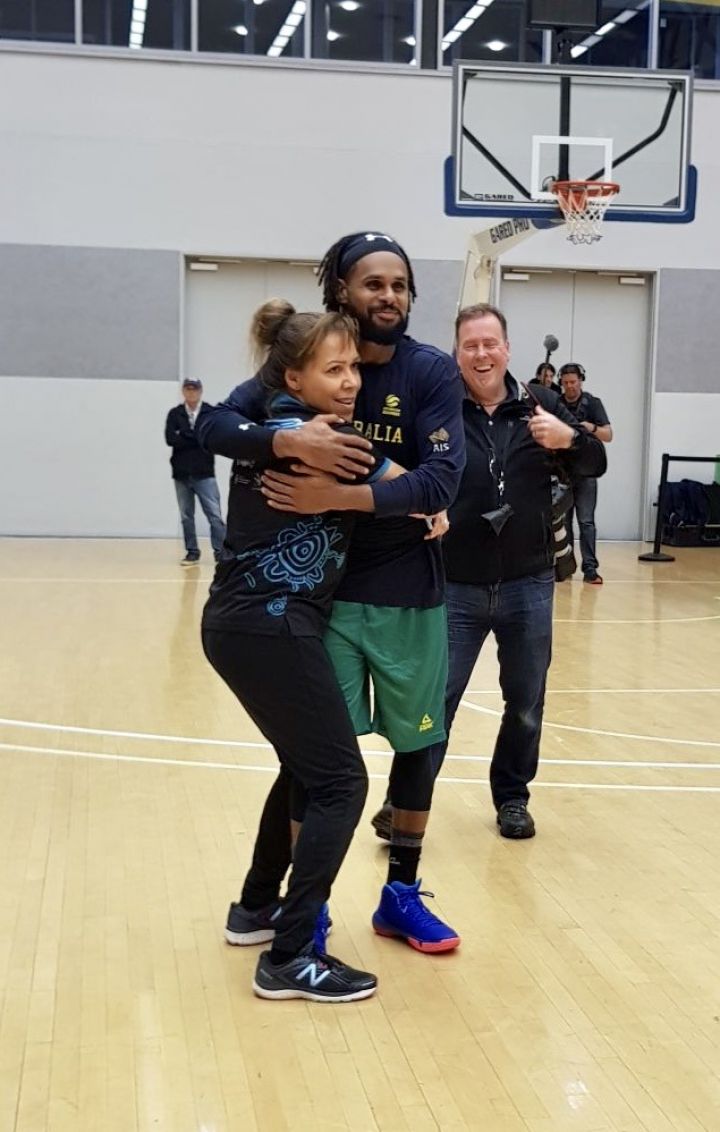As a social scientist, sports coordinator, community development practitioner, children’s author, and emerging photographer, Cheryl Kickett-Tucker is perhaps the busiest and most accomplished woman in Australia. The Wadjuk Noongar Traditional Owner is driven by her love for health, education and sport, but loves more than anything her deep involvement in her Aboriginal community. For Cheryl, success is not measured in her countless awards or achievements, but in the tangible impact she can have on people’s lives: “that’s what fires my heart”. Humble and inspiring, she spoke with Inclusive Australia earlier this year – prior to becoming an Order of Australia recipient in June – to discuss the community spirit of sport, following your passion, and navigating a global pandemic in vulnerable communities.

Cheryl lives in Swan View, in the north-east of Perth, where 39 percent of all Aboriginal people in Western Australia live. She describes her upbringing as “hard”: she was the middle child, her father had survived the Stolen Generation, her parents divorced when she was just 10 years of age, her mother worked three jobs, and they lived with three families under the same roof. During this time, her mother became her beacon. “Mum was an absolute stalwart,” Cheryl says. She had been to university and made it to the highest level in the Department of Aboriginal Affairs, and raised Cheryl and her siblings as “soldiers in the house” to always maintain a stable home environment. Today, Cheryl is proud to say she shares her Mum’s humility, determination, and grassroots focus. She harbours a humble dislike of discussing her many achievements, because “at the end of the day, they mean nothing; my love is with my people”.
Beginning a lifelong “fanatical” love for sport more broadly, Cheryl discovered basketball at 10 years of age. “It was everything to me,” she says, remembering her involvement with the sport every day until her early twenties in either a playing, coaching or umpiring capacity. She played at both state and national level, and despite her mother’s concerns for career practicality – “you cannot eat a basketball” – Cheryl was confident in her pursuit of an international basketball career. After Year 12, she spoke to a careers counsellor and expressed her interest in studying Physical Education, but was told that Aboriginal people could not be PE teachers. Spurred by this blatant and unfounded racism, Cheryl went on to complete a Bachelor’s degree in Sports Science and was granted a year-long postgraduate scholarship to the University of Oregon immediately thereafter. She played with a local basketball team while studying weekends and night classes in that “flat out” period where she accomplished a two-year course in just 12 months. Rounding out her impressive list of tertiary qualifications, Cheryl returned to Perth and completed a PhD in Education. She was the first Indigenous person at her university to obtain a PhD.

Today, Cheryl lives with her “very supportive” children and husband of 31 years. She writes children’s fiction with a focus on Aboriginal stories, and pursues gardening and photography in her spare time. Her full-time job is as a research professor at Curtin University, and she jokes that she somehow didn’t become a teacher after all that study. “I love my job because I can make an impact,” she says, and explains that she is able to put her research to practice through her involvement in Aboriginal community group Koya. She founded, develops and directs Koya’s basketball lifestyle program ‘Kaat, Koort and Hoops’, aimed at young Aboriginal people. Building relationships with her “basketball kids” is an immense source of fulfilment, and Cheryl is proud that they can trust and talk to her about any problems they face, even if they are not attending school or in contact with their parents. The children she works with come from significantly disadvantaged backgrounds, and her greatest passion is helping them experience as much goodness as possible. There were plans to take the basketball kids to the Pacific Rim Basketball Championships in Honolulu this year, but unfortunately that trip has been postponed due to the pandemic. Cheryl is hoping to go instead to New Zealand, whenever possible; “most of these kids have never left their postcode”, she says, so a long-haul trip would provide life-changing education about travel and the economy. In terms of the coronavirus’ impact more broadly, she rues the lack of community interaction enforced by social distancing that has dragged some young Aboriginal people “back to square one”. The Koya team is counteracting this as best they can, fostering a digital community through running quizzes and activities via the Koya Facebook page, connecting local families through a WhatsApp group, posting online basketball drills, and running a mobile food truck throughout lockdown. “We’re still doing everything we were, just from a distance,” she says.
Throughout the pandemic, Cheryl herself has been “flat out” and as productive as ever. She says a silver lining has been that “the right spotlight is in the right place” now in terms of government attention on Aboriginal issues, given the widespread acknowledgement that the virus would be “devastating” to vulnerable communities. As part of a localised COVID-19 response and recovery taskforce, she has focussed on bringing “lots of love” to Aboriginal students during this time, as “there’s too much doom and gloom otherwise”. Even prior to the pandemic, the past year has been a difficult one in terms of working within difficult infrastructures at a state and community level. Cheryl often feels “weary” that despite the hard work and efforts of organisations like Koya, the current government systems “just aren’t ready for us”. Government processes and policymakers are often too slow-moving to enact necessary, timely change, which detracts from the true needs of disadvantaged communities and children in particular. While this is frustrating, and she wants more than anything to make tangible widespread impact now, it also drives Cheryl to continue to push for change at a policy level. “We’re challengers,” she says proudly.

Although she has already achieved so much, Cheryl is always looking forward to the next project. Her ultimate goal is to build and run her own community centre with a focus on sport and fitness. This would give her more autonomy in tailoring programs to locals, rather than being at the whim of the government and their processes. She envisions teams of kids being trained and employed “in a place where they are safe”, to create real career pathways and inspire hope in young Aboriginal people. This hope is crucial, as Cheryl explains that between the ages of 17 and 22, Aboriginal people feel quite lost; they find it difficult to get to university or find employment due to a lack of money or quality education, but are ineligible for welfare until they turn 22. To have a community centre providing employment, guidance and stability for young people would make a clear difference in preventing listlessness and self-medication in that age group specifically. Cheryl also dreams of taking a year off work to take a group of her basketball kids away from Perth and visit other Indigenous communities around the world. Understanding the experiences of other cultures and introducing them to their basketball program would be invaluable, and she would love to explore connections in Alaska, Norway, New Zealand, and Bangladesh, among others. Everything she does is essentially about “changing kids’ lenses”, she says, so that they see their cup as half full, not half empty.
“I don’t like to talk about my achievements,” Cheryl says, “I just want to make a difference”. And make a difference she does. This tireless desire to make actual positive changes to the lives of Aboriginal people is testament to her determination and selflessness, especially in encountering roadblocks like gatekeepers and outdated government systems. Although it is often difficult, her mother’s favourite mantra continues to inspire Cheryl in the face of adversity: “your light is shining for a purpose, and nobody can snuff that out”.


Cheryl Kickett-Tucker is a Wadjuk Noongar Traditional Owner in Perth. Last month, she was awarded Book Chapter of the Year Award for the Faculty of Humanities at Curtin University.
Let us know!

